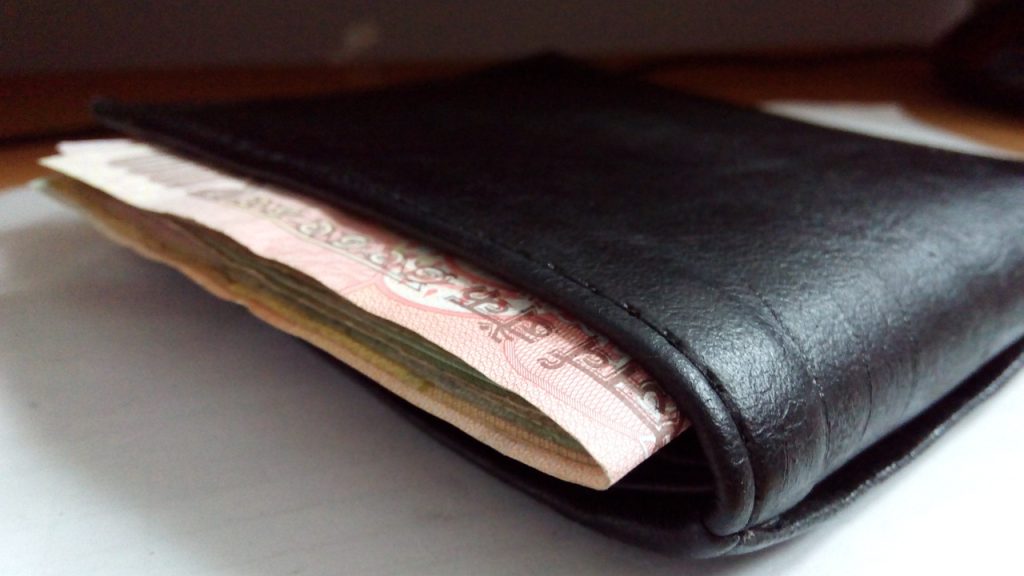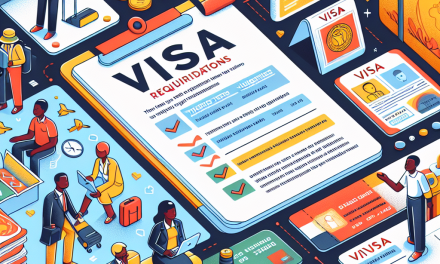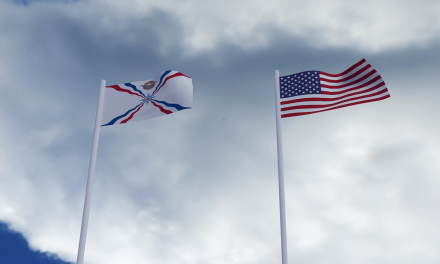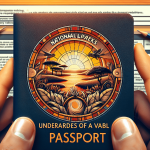So, you’ve probably heard of Zambia – that beautiful country located in southern Africa known for its stunning landscapes and abundant wildlife. But have you ever wondered what currency they use? Well, wonder no more! In this article, we’ll be exploring the official currency of Zambia and giving you all the important details you need to know. Buckle up, because we’re about to embark on a fascinating journey into the world of Zambian currency!

Overview
Introduction
In this article, we will explore the official currency of Zambia and its significance in the country’s economy. We will delve into the history of currency in Zambia, the denominations and design of the current currency, and the security features incorporated to prevent counterfeiting. Additionally, we will discuss the issuance and control of the currency, its exchange rate, and how it impacts the economy. Furthermore, we will explore the acceptance of foreign currencies, currency management, the role of currency in the economy, and its international use. Finally, we will provide some travel tips for visitors regarding currency exchange and the use of credit cards. By the end of this article, you will have a comprehensive understanding of the official currency of Zambia.
Basic Information about Zambia
Before diving into the details of Zambia’s currency, it is essential to have a basic understanding of the country itself. Located in southern Africa, Zambia is known for its diverse wildlife, stunning landscapes, and rich culture. The country shares borders with eight neighboring countries and is home to the magnificent Victoria Falls. English is the official language, making it easier for international travelers to communicate. Now let’s explore the currency that plays a pivotal role in Zambia’s financial system.
Currency of Zambia
History of Currency
The history of currency in Zambia dates back to the colonial era when the British Pound was the official currency. After gaining independence in 1964, Zambia introduced its own currency, the Zambian Kwacha (ZMK). The ZMK underwent several changes in denominations and designs over the years, reflecting the country’s evolving socio-economic landscape. In 2013, due to persistent inflation, the ZMK was redenominated, and the Zambian Kwacha (ZMW) was introduced as the new official currency.
Denominations
The Zambian Kwacha (ZMW) is divided into various denominations, including notes and coins. The current notes in circulation are 2, 5, 10, 20, 50, and 100 Kwacha. These notes feature iconic Zambian landmarks and political figures, showcasing the nation’s cultural heritage. The coins in circulation include 5, 10, and 50 Ngwee, with the Ngwee being a subunit of the Kwacha. These coins are used for smaller transactions.
Design and Features
The Zambian Kwacha notes have a distinct design that incorporates elements representing the country’s natural resources, wildlife, and culture. Each note features a prominent Zambian figure, such as a notable political leader or conservationist. Additionally, the notes include security features like watermarks, holograms, and unique serial numbers to protect against counterfeiting. These features ensure the authenticity and integrity of the currency.
Security Features
In an effort to combat counterfeit currency, the Zambian Kwacha incorporates advanced security features. These features include raised print for visually impaired individuals, metallic threads visible under ultraviolet light, and unique color-shifting ink. Moreover, the notes are made of durable polymer material, making them more resistant to wear and tear. These security measures help maintain the integrity of the currency and ensure trust in its authenticity.
Issuance and Control
Bank of Zambia
The Bank of Zambia serves as the central bank and is responsible for the issuance and control of the country’s currency. Established in 1964, the Bank of Zambia plays a crucial role in maintaining monetary stability, promoting economic growth, and safeguarding the value of the Zambian Kwacha. The bank operates under the guidance of the government and implements monetary policies to regulate the money supply and control inflation.
Currency Issuance
The Bank of Zambia has the exclusive authority to issue currency in the country. It determines the amount of currency to be printed and distributed based on several factors, including the state of the economy, inflation rates, and national demand. The bank ensures that an adequate supply of currency is available to meet the needs of individuals, businesses, and financial institutions across the nation.
Monetary Policy
One of the primary responsibilities of the Bank of Zambia is to formulate and implement monetary policy. Through monetary policy, the central bank aims to manage the money supply, interest rates, and inflation to promote price stability and sustainable economic growth. By adjusting the key policy rates, such as the benchmark interest rate, the Bank of Zambia influences borrowing costs, investment decisions, and overall economic activity within the country.
Exchange Rate
Factors Influencing Exchange Rate
The exchange rate is the value at which one currency can be exchanged for another. Several factors influence the exchange rate of the Zambian Kwacha against other currencies. Some of these factors include the supply and demand for the currency in international foreign exchange markets, trade imbalances, inflation rates, and interest rate differentials between Zambia and other countries. Political stability and economic indicators also play a significant role in determining the exchange rate.
Determining Exchange Rate
The exchange rate of the Zambian Kwacha is primarily determined by the foreign exchange market, where buyers and sellers trade currencies. Supply and demand dynamics in the market, influenced by factors such as trade balance and investment flows, lead to fluctuations in the exchange rate. However, the Bank of Zambia may intervene in the foreign exchange market from time to time to maintain stability when necessary, using its foreign exchange reserves.
Effect on Economy
The exchange rate of a country’s currency has a significant impact on its economy. A strong currency can make imports cheaper and enhance the purchasing power of individuals and businesses. On the other hand, a weak currency can boost exports by making them more affordable to foreign buyers. Additionally, changes in the exchange rate can affect the cost of living, inflation rates, employment levels, and foreign investment, thereby influencing the overall economic conditions of Zambia.

Foreign Currencies
Accepted Currencies
While the Zambian Kwacha is the official currency of Zambia, some establishments in popular tourist areas may accept major foreign currencies such as the US Dollar, Euro, or British Pound. However, it is advisable to use the local currency for most transactions to avoid any potential issues or discrepancies. It is also worth noting that exchange rates for foreign currencies may vary, and it is essential to confirm the rates before conducting any transactions.
Currency Exchange
Currency exchange can be conducted at authorized financial institutions, such as banks, exchange bureaus, or hotels. These establishments offer services to convert foreign currencies into Zambian Kwacha and vice versa. It is advisable to compare exchange rates and fees before choosing a provider to ensure the best value for your money. It is also recommended to carry some cash in the local currency for smaller establishments that may not accept credit cards.
Foreign Exchange Restrictions
Zambia does not impose significant restrictions on foreign exchange, allowing individuals and businesses to freely convert and transfer currencies. However, it is important to comply with the local regulations and declaration requirements, especially when dealing with large sums of money. It is advisable to consult with the Bank of Zambia or a trusted financial institution for up-to-date information regarding any restrictions or requirements related to foreign exchange.
Currency Management
Currency Circulation
As the official currency, the Zambian Kwacha is circulated throughout the country for various economic transactions. The currency flows through the hands of individuals, businesses, and financial institutions, forming an integral part of everyday economic activities. The Bank of Zambia monitors the circulation of currency, ensuring an adequate supply to meet the demands of the population while maintaining its overall integrity and value.
Replacement and Demonetization
Over time, currency notes may become damaged, worn out, or invalidated, necessitating their replacement. The Bank of Zambia periodically replaces damaged or old currency notes with new ones to ensure the quality and durability of the currency in circulation. Additionally, demonetization may occur, wherein certain denominations or series of notes are officially declared no longer legal tender. Demonetized currency can be exchanged within a specified period at authorized financial institutions.
Counterfeit Currency
To combat counterfeit currency, the Bank of Zambia works diligently to incorporate advanced security features in its currency. However, counterfeit notes can still find their way into circulation. Individuals and businesses are encouraged to familiarize themselves with the security features of the Zambian Kwacha notes and report any suspicious or counterfeit currency to the appropriate authorities. Vigilance and awareness play a crucial role in maintaining the integrity of the currency.

Currency and Economy
Role of Currency in Economy
Currency plays a vital role in any economy, including that of Zambia. The Zambian Kwacha facilitates economic transactions, acting as a medium of exchange for goods and services. It also serves as a unit of account, providing a standard measure for pricing, wages, and contracts. Furthermore, the currency functions as a store of value, allowing individuals and businesses to accumulate wealth and save for the future.
Inflation and Currency Value
Inflation, the general increase in prices over time, has a direct impact on the value of a currency. Higher inflation erodes the purchasing power of the currency, meaning that the same amount of money can buy fewer goods and services. The Bank of Zambia implements monetary policies to manage inflation and maintain price stability. By controlling inflation, the central bank aims to preserve the value and stability of the Zambian Kwacha.
Currency Stability
Currency stability is crucial for a healthy and thriving economy. Stable currencies provide certainty and confidence to individuals, businesses, and investors, fostering economic growth and development. The Bank of Zambia plays a vital role in maintaining currency stability by implementing effective monetary policies, managing exchange rates, and closely monitoring economic indicators. A stable currency allows for smoother domestic and international transactions, reducing the risks associated with volatile exchange rates.
International Use
Zambia’s Currency on the Global Stage
The Zambian Kwacha primarily serves as the domestic currency within Zambia. However, due to its proximity to other countries and its growing importance in regional trade, the currency does find limited usage in cross-border transactions with neighboring nations. Additionally, global remittance services may facilitate the exchange of Zambian Kwacha with other major international currencies, enabling the transfer of funds to and from Zambia.
Trading Partners and Currency
Zambia engages in international trade with various countries, having both import and export partners. In these trade relationships, the currencies of trading partners play a vital role. Exchange rates between the Zambian Kwacha and the currencies of trading partners can greatly influence the cost and competitiveness of goods and services. The Bank of Zambia actively monitors and manages exchange rates to ensure a favorable environment for trade and economic growth.
Travel Tips
Currency Tips for Visitors
If you are planning a visit to Zambia, it is advisable to familiarize yourself with the local currency, the Zambian Kwacha. While some establishments may accept major foreign currencies, it is best to carry the local currency for most transactions. It is also recommended to carry small denominations for convenience, as larger notes may be more difficult to break. As with any foreign travel, it is essential to keep your money secure and exercise caution when handling cash.
Where to Exchange Currency
Currency exchange services are available at various locations in Zambia, including banks, exchange bureaus, and some hotels. Major airports also offer currency exchange services, although the rates may not be as competitive. It is advisable to compare exchange rates, fees, and service quality before choosing a provider. Reliable and authorized financial institutions are recommended for currency exchange to ensure a smooth and secure transaction.
Using Credit Cards
Credit cards are widely accepted in major cities and tourist areas, making them a convenient payment option for travelers. However, it is essential to notify your credit card company about your travel plans to prevent any unexpected card blocks or fraud alerts. While credit cards offer convenience, it is still advisable to carry some cash for smaller establishments or areas where card acceptance may be limited. Remember to keep your credit card and personal identification information secure at all times.
Conclusion
In conclusion, the Zambian Kwacha serves as the official currency of Zambia, playing a crucial role in the country’s economy. The Bank of Zambia oversees the issuance and control of the currency, ensuring stability and integrity. The exchange rate of the Zambian Kwacha is influenced by various factors and has a significant impact on the economy. While the Zambian Kwacha is the primary accepted currency in the country, some establishments may accept major foreign currencies. Currency management involves circulation, replacement, and dealing with counterfeit currency. The Zambian Kwacha’s value is affected by inflation, and currency stability is essential for economic growth. Although primarily used domestically, the Zambian Kwacha has limited international usage and is influenced by trading partner currencies. Travelers should be aware of currency tips, where to exchange currency, and the use of credit cards when visiting Zambia. Understanding the official currency and its significance will undoubtedly enhance your experience when engaging with Zambia’s vibrant economy.












